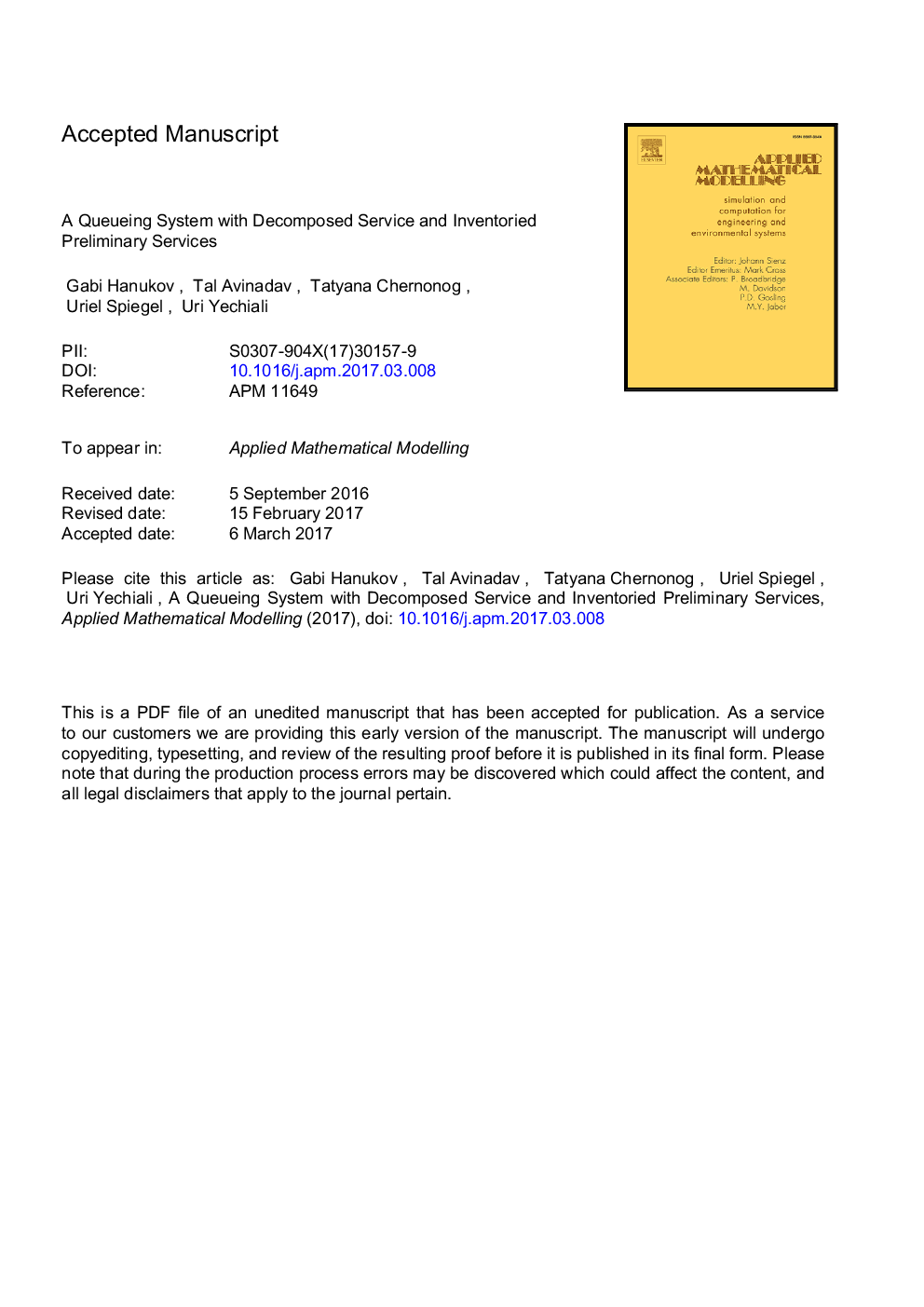| Article ID | Journal | Published Year | Pages | File Type |
|---|---|---|---|---|
| 5470985 | Applied Mathematical Modelling | 2017 | 36 Pages |
Abstract
We study a single-server queue in which the service consists of two independent stages. The first stage is generic and can be performed even in the absence of customers, whereas the second requires the customer to be present. When the system is empty of customers, the server produces an inventory of first-stage ('preliminary') services (denoted PSs), which is used to reduce customers' overall sojourn times. We formulate and analyze the queueing-inventory system and derive its steady-state probabilities by using the matrix geometric method, which is based on calculating the so called rate matrix R. It is shown that the system's stability is not affected by the production rate of PSs, and that there are cases in which utilizing the server's idle time to produce PSs actually increases the fraction of time during which the server is dormant. A significant contribution is the derivation of an explicit expression of R, whose entries are written in terms of Catalan numbers. This type of result is rare in the literature and enables large-scale problems to be solved with low computational effort. Furthermore, by utilizing Laplace-Stieltjes transform and its inverse, we obtain the distribution function of customers' sojourn time. Finally, based on the probabilistic study, we carry out an economic analysis using a practical example from the fast food industry.
Keywords
Related Topics
Physical Sciences and Engineering
Engineering
Computational Mechanics
Authors
Gabi Hanukov, Tal Avinadav, Tatyana Chernonog, Uriel Spiegel, Uri Yechiali,
